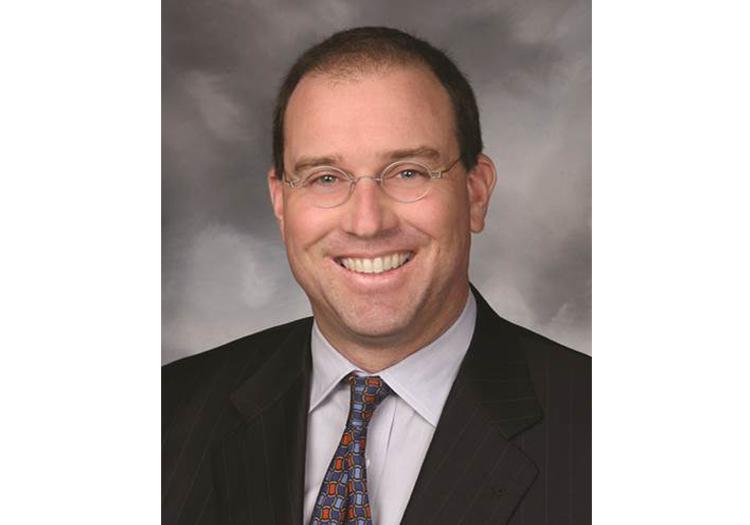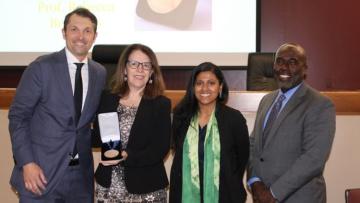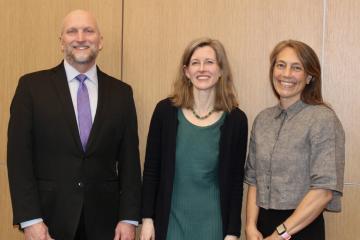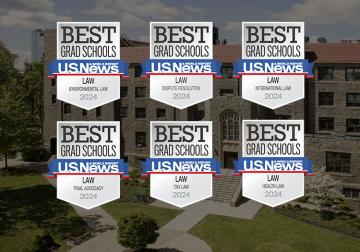Craig A. Hart named new Executive Director of the Pace Energy Climate Center

ELISABETH HAUB SCHOOL OF LAW AT PACE UNIVERSITY ANNOUNCES NEW EXECUTIVE DIRECTOR OF PACE ENERGY AND CLIMATE CENTER
WHITE PLAINS, NY – The Elisabeth Haub School of Law at Pace University announces that Craig A. Hart has been named the new Executive Director of the Pace Energy Climate Center (PECC), effective November 15.
Dr. Hart is a practitioner and scholar, with more than 15 years of applied experience leading projects and advising governments and project developers in energy infrastructure finance and implementing decarbonization technologies. He has advised governments on policies and regulation supporting renewables, energy efficiency, grid modernization and microgrids, and low carbon technologies for the fossil-fuel power generation sector. He has worked in the United States and with developing countries on climate mitigation and adaptation efforts. In addition, he has extensive teaching experience as a lecturer at the Johns Hopkins University Energy Policy and Climate Program and at Temple University's China Rule of Law program in Beijing. Dr. Hart earned a Ph.D. from the Massachusetts Institute of Technology researching decarbonization paths with the aim of preventing dangerous climate change, a bachelor's and law degree from the University of California at Berkeley, and a master's in economics from New York University.
“For more than 30 years, the Pace Energy and Climate Center has been the leader working at the intersection of energy and the environment,” said Horace Anderson, Dean of the Elisabeth Haub School of Law at Pace University. “Dr. Hart is a tremendous addition to Haub Law at a time when the Center stands at the forefront of tackling the complex issues of energy policy, climate change mitigation and resilience.”
Haub Law is home to the #1 ranked Environmental Law Program in the nation according to U.S. News and World Report and PECC is a central part of the environmental law program. PECC engages government decision makers and key stakeholders with robust research and analysis in law and policy. Over the past three decades, PECC has worked to improve energy efficiency, advance renewable energy and distributed generation, reduce greenhouse gas emissions and make communities more resilient in the face of climate change impacts.
“I am honored and excited to lead the Center into its fourth decade,” said Dr. Hart. “The Center's deep expertise working with utilities, renewables and other low carbon technologies will continue to provide critical support to New York, national, and international efforts to modernize and decarbonize our energy infrastructure, and adapt to a changing climate.”
“It is all-hands-on-deck as we rapidly decarbonize to mitigate climate change,” said Interim Associate Dean & Executive Director, Environmental Law Programs and Haub Distinguished Professor of Environmental Law Katy Kuh. “Dr. Hart combines policy acumen and implementation experience that will help PECC lead efforts to design and effect decarbonization measures.”
###
About Elisabeth Haub School of Law at Pace University
Pace University’s Elisabeth Haub School of Law offers J.D. and Masters of Law degrees in both Environmental and International Law, as well as a Doctor of Juridical Science (SJD) in Environmental Law. The school, housed on the University’s campus in White Plains, NY, opened its doors in 1976 and has over 8,500 alumni around the world. The school maintains a unique philosophy and approach to legal education that strikes an important balance between practice and theory. For more information visit law.pace.edu.
About the Pace Energy and Climate Center
The Pace Energy and Climate Center was founded in 1989 as the Pace Energy Project by Dean Emeritus Richard L. Ottinger upon his retirement from the U.S. Congress. Early on, Dean Ottinger recognized the environmental impacts of our supply and use of energy in the United States. From the very beginning, under Ottinger’s leadership, the Center has provided cutting edge research and analysis of energy production alternatives’ social and environmental costs and benefits.
Through engagement, the Center was among the first organizations to highlight the benefits of energy efficiency and renewable energy as alternatives to conventional electricity generation.
In addition to being a force for legal and policy change, the Center trains the next generation of smart energy professionals. Students from Pace Law School are actively involved in the Center’s projects – our interns contribute directly to the creation and development of work products for both domestic and international projects. Students have gone on to careers at institutions central to the energy discussion, such as the Federal Energy Regulatory Commission, the U.S. Environmental Protection Agency, the Energy Foundation, New York State Energy Research and Development Authority, the New York Power Authority, and the New York Independent System Operator, to name a handful.
30 years later the Center remains at the leading edge of finding solutions to our energy and climate challenges on the local, state, regional, national and international levels.



